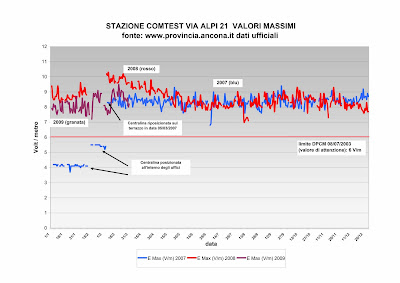196/03 I found this "note" that I think will appeal to all my students / i
Briefing on the protection of personal data under Legislative Decree 196 of 30 June 2003
PERSONAL
The Leg. 196/03 (hereinafter "Act") regulates the processing of personal data.
Personal data is any information concerning a natural person or legal entity or association (hereinafter referred to as "he") allowing the unambiguous identification, whether direct or indirect, concerned.
Processing of personal data means to them:
- gathering, recording, organization and storage;
- development, selection, extraction and comparison
- and spread - amendment, blocking, erasure and destruction.
The law provides for these treatments, in principle, and with some specific exceptions, the individual's consent.
E 'provided that the person concerned will be given the necessary information about the contents of the Law with particular reference to their rights,
this information has been summarized in this briefing note.
SOURCE OF PERSONAL
The personal data intended to contribute to our records and those of paper and other entities on behalf of whom the statement is provided may be collected directly from the data subject or third parties.
PURPOSE OF DATA
The data collected can be used for:
> obligations arising from laws, regulations and legislation, (eg. For the management of relationships with social security and welfare, communications against the orders of supervision).
> contractual obligations, pre arising from the relationship set up by the person concerned (eg. For accounting and tax) including the communication of data to third parties for reasons of operational and organizational (such as the provision of services, storage, shipping, payment processing).
> requirements for the admission to unilateral initiatives of the company such as: competitions, contests, trips, etc..
(For the purposes of the preceding points, the missing data may make it impossible, in whole or in part, to society, to establish and / or performing the contractual relationship).
> obligations related to the selection process which preceded the creation of the contractual relationship (eg. Acquisition of "curriculum vitae" and the compilation the questionnaire information).
SENSITIVE DATA
The Act defines sensitive data as those personal details to reveal:
- racial and ethnic diversity of the individual;
- religious, philosophical or other assistance;
- political opinions or membership of political associations, trade unions, religious or philosophical
- the state of health and sex life.
The company does not operate any processing of sensitive data.
METHOD OF DATA
The processing of personal data takes place through manual, computer and electronic logic strictly related to the above-mentioned purposes, however, in to ensure the security and confidentiality of data.
RIGHTS
Article. 7 of the Act attaches to specific rights. In particular, interested parties may obtain, from the existence or otherwise of their personal data and that such data be made available in understandable form.
Applicants may also ask:
> to know the origin of the data and the logic and purposes upon which the treatment, to obtain the cancellation,
> transformation into anonymous form or block of data in violation of the law, and the updating, correction or, if there is interest, data integration;
> to oppose, for legitimate reasons, the treatment itself.
OWNER AND RESPONSIBLE
owner of the personal data is the company [or the office.] ... ... ... ... ....

